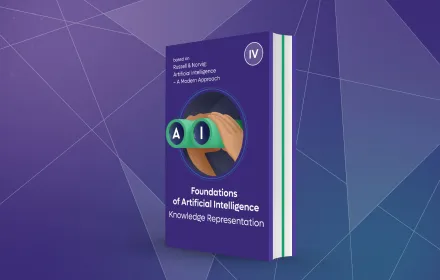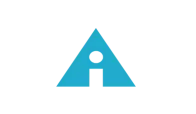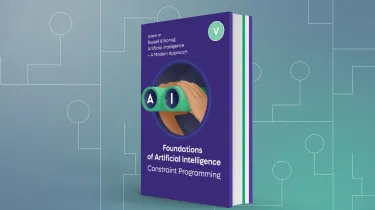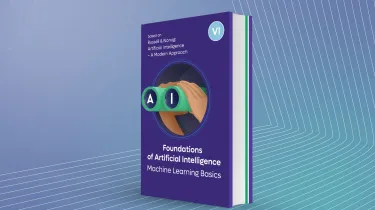Methoden der KI IV - Wissensrepräsentation
In diesem Kurs werden die Möglichkeiten und Grenzen der Logik für die Darstellung von begrifflichem und faktischem Wissen in Ontologien untersucht.

Übersicht
KI-Agenten müssen Wissen über abstrakte Konzepte und konkrete Individuen repräsentieren, um in komplexen Umgebungen erfolgreich handeln und viele praktische Fragen zu beantworten.
Seit Jahrzehnten untersucht die KI die Wissensrepräsentation mit Hilfe von Teilsprachen der Prädikatenlogik erster Stufe, den sogenannten Beschreibungslogiken. Dieser Kurs fasst die Forschung auf diesem Gebiet zusammen und veranschaulicht die Möglichkeiten und Grenzen von Beschreibungslogiken für praktische Anwendungen. Klassische ungelöste KI-Probleme wie das Frame Problem und die Belief Revision werden diskutiert.
Der Kurs gibt einen Überblick über Initiativen wie das semantische Web sowie über frühe Versuche, moderne Graphdatenbanken und ihre Abfragesprachen zu standardisieren. Das Material hilft zu verstehen, warum moderne Graphdatenbanken riesige Mengen von Fakten zu Individuen und ihren Beziehungen darstellen können, aber noch keine Fähigkeiten zum logischen Schliessen (Reasoning) bieten und was in Zukunft nötig sein wird, um diese Fähigkeiten zu implementieren.
Dieser Kurs basiert teilweise auf Kapitel 10 des Lehrbuchs von Stuart Russell und Peter Norvig: Introduction to Artificial Intelligence - A Modern Approach, erweitert das Thema aber um umfangreiches Zusatzmaterial.
Der Kurs wird in englischer Sprache mit deutschen Untertiteln gehalten.
Welche Themen werden behandelt?
- Konzeptuelles Wissen, Ontologien und Taxonomien
- Beschreibungslogische Systeme, ABox- und TBox-Repräsentationen
- Beschreibungslogik ALC (Syntax, Semantik, Komplexität)
- Schlussverfahren (reasoning) in Wissensbasen und Reduktion auf logische Erfüllbarkeit (SAT checking)
- Web-Ontologien und das Semantische Web, RDF, OWL, SPARQL
- Das Frame Problem in der KI
- Nicht-monotones Schließen und Belief Revision
Was werde ich erreichen?
Am Ende des Kurses sind Sie in der Lage
- verschiedene Arten von Wissen zu unterscheiden,
- konzeptionelle Wissensrepräsentation, ihre Möglichkeiten und Grenzen zu verstehen,
- Reasoningverfahren zu diskutieren, die Ontologien mit faktischem Wissen über Individuen kombinieren,
- KI-Initiativen zum Semantic Web und zur Standardisierung von Ontologien zu reflektieren,
- die Grenzen von Ontologien bei der Behandlung von Ausnahmen und die ungelösten Probleme bei der Belief Revision zu verstehen.
Welche Voraussetzungen muss ich erfüllen?
Ein gutes Verständnis der Logik ist eine Voraussetzung, um dem theoretischen Teil dieses Kurses folgen zu können. Der Kurs "Methods of AI III - Logical Reasoning" bietet eine gute Einführung in die Logik. Historische Diskussionen und praktische Beispiele können auch ohne logische Vorkenntnisse verfolgt werden.








